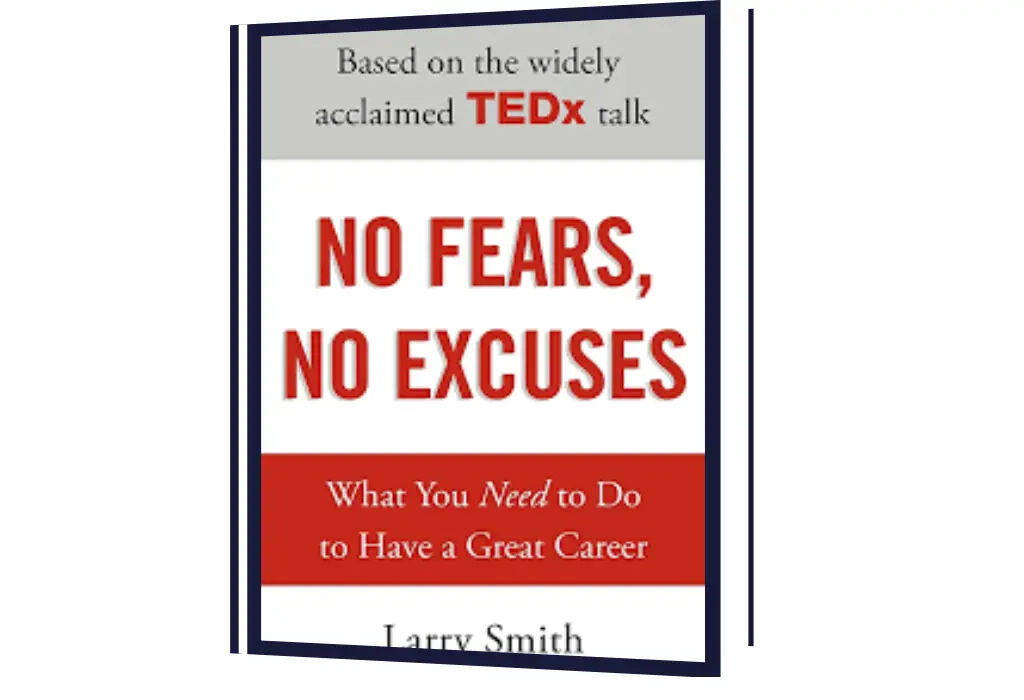A provocative new approach to discovering your true calling in life and achieving not just a good career, but a great one
Over the past three decades, professor Larry Smith has become something of a “career whisperer” for his students at the University of Waterloo. Each year, millions of talented college students graduate with little or no real sense of what their next step will be, yet they are determined not to settle for a so-so career; they are looking for a great career. Smith points out that only a few fortunate souls are born knowing exactly what they want to pursue in life. The rest of us have to stop making excuses and start asking ourselves tough questions about achieving our goals. In his straightforward, no-nonsense approach, Smith itemizes and dismisses all the usual excuses, fears, and worries that people hide behind when trying to find their true direction. His unusual take on this challenging conundrum is both universal and timely, and his stunning TEDx talk on this subject has been viewed by more than six million people so far. This is the perfect book for any college graduate who is wondering where he or she fits into the world. It won’t necessarily be easy, but if you follow Smith’s guidance, your career dreams can indeed come true.
No Fears, No Excuses: What You Need to Do to Have a Great Career by Larry Smith is a career guide that focuses on the mindset and actions necessary to achieve long-term professional success. Smith, a seasoned economist and career coach, draws from decades of experience to address common fears and misconceptions about building a fulfilling career. This summary distills the key themes of the book into actionable insights while maintaining the spirit of Smith’s practical, often blunt advice.
Introduction: Defining a Great Career
Smith opens the book by defining what constitutes a “great career.” According to him, a great career is one in which you feel both successful and fulfilled. It goes beyond financial security and recognition—it’s about finding work that resonates with your passions and unique talents. Smith challenges the conventional wisdom that a “good” career should be the goal. A “good” career may provide stability and comfort, but it lacks the excitement, meaning, and potential for growth that characterize a truly great career.
From the start, Smith emphasizes that everyone can have a great career, but only if they are willing to make hard choices, take risks, and confront their fears.
The Excuses: Why People Fail to Pursue Great Careers
In the early chapters, Smith lists and refutes the common excuses people use to avoid pursuing a great career. These excuses often stem from fear—fear of failure, fear of making the wrong choice, fear of stepping outside one’s comfort zone. Some of the excuses Smith tackles include:
“I don’t have a passion.”
Many people claim they don’t have a passion, and Smith argues that this is a false belief. Everyone has something that interests them deeply, but finding that passion requires introspection and exploration. Smith advises people to actively seek out new experiences, learn from failures, and be open to discovering their passion along the way.“I don’t want to take the risk.”
Smith points out that every career involves some level of risk. Whether you’re starting your own business or choosing a stable corporate job, there are always uncertainties. He urges readers to reframe risk as a necessary step toward growth and fulfillment rather than something to be avoided.“I need to make money right away.”
While financial stability is important, Smith cautions against letting short-term financial needs drive long-term career decisions. He encourages readers to prioritize their passion and talent, trusting that the money will follow once they excel in their chosen field.“I don’t have enough time.”
This excuse often stems from a perceived lack of time to explore new opportunities or develop new skills. Smith stresses the importance of time management and prioritization, emphasizing that you can always make time for what truly matters.
By dismantling these excuses, Smith pushes readers to stop holding themselves back and start taking control of their career choices.
The Myth of the Safe Path
A major theme in the book is the idea that there is no truly “safe” path to success. Many people choose conventional career paths because they believe they offer stability and security. However, Smith argues that the landscape of work is changing rapidly, and traditional jobs are no longer as secure as they once were. Automation, globalization, and technological advances are disrupting industries, and the skills needed to thrive are constantly evolving.
Smith encourages readers to reject the illusion of the “safe path” and instead pursue careers that align with their passions and talents. By choosing a path that excites and motivates you, you are more likely to succeed in the long run, even in the face of uncertainty.
The Passionate Pursuit of Work You Love
One of the key points Smith emphasizes throughout the book is the importance of passion. A great career is built on work that you are passionate about. Passion, according to Smith, is not just about doing what you love; it’s about doing something that challenges and excites you.
He explains that passion is what gives people the energy and resilience to overcome obstacles and setbacks. When you’re passionate about your work, you’re more likely to push through challenges, innovate, and continuously improve your skills. Smith advises readers to take the time to discover what they are passionate about, even if it means experimenting with different jobs, industries, or creative projects.
Finding Your Unique Talent
While passion is essential, it is not enough on its own to guarantee a great career. Smith also stresses the importance of finding and developing your unique talent. Everyone has a unique set of skills, strengths, and abilities that can set them apart in their chosen field. The challenge is to identify those talents and leverage them to create value in your career.
Smith offers practical advice for identifying your unique talents, such as asking for feedback from others, reflecting on past achievements, and exploring different avenues of work. He emphasizes that developing a great career requires continuous self-improvement and a willingness to take on new challenges.
Taking Risks and Overcoming Fear
Fear is a central theme in the book, and Smith addresses it head-on. Fear of failure, fear of rejection, and fear of the unknown are all common reasons why people settle for mediocre careers. Smith argues that fear is inevitable, but it shouldn’t be paralyzing.
To have a great career, you must be willing to take calculated risks. This might mean quitting a stable job to pursue your passion, starting a business, or taking on a challenging new role. Smith emphasizes that the fear of failure should not be a deterrent. Failure, in his view, is a valuable learning experience that can provide the insight needed to succeed in the future.
Smith also discusses the importance of resilience and adaptability. In a world where change is constant, the ability to adapt to new situations and bounce back from setbacks is critical for career success.
Building Relationships and Seeking Mentors
No career is built in isolation. Smith highlights the importance of building a strong network of relationships with peers, mentors, and industry professionals. Networking is not just about finding job opportunities; it’s about learning from others, gaining new perspectives, and receiving support during difficult times.
Smith advises readers to actively seek out mentors—people who have already achieved success in their field and can offer guidance and advice. He encourages readers to be proactive in building relationships and to offer value to others in their network.
The Role of Luck
Smith acknowledges that luck can play a role in career success, but he emphasizes that luck alone is not enough. In his view, luck is what happens when preparation meets opportunity. By developing your skills, building a strong network, and pursuing your passion, you increase the likelihood of being in the right place at the right time.
Smith also points out that even when luck presents an opportunity, it’s up to the individual to seize it. Those who are unprepared or unwilling to take risks will miss out on the benefits of luck.
Setting Ambitious Goals
To achieve a great career, Smith advises setting ambitious, long-term goals. He argues that incremental goals often lead to incremental success. If you want to achieve something extraordinary, you need to aim high and be willing to put in the hard work necessary to reach those goals.
Smith also emphasizes the importance of persistence. Achieving a great career is not easy, and there will be setbacks along the way. The key is to stay focused on your long-term goals and to keep pushing forward, even when progress seems slow.
Conclusion: No More Excuses
In the final chapters, Smith reiterates his core message: the only thing standing between you and a great career is you. He challenges readers to stop making excuses and start taking action. Whether it’s fear, self-doubt, or a lack of direction, Smith argues that these obstacles can be overcome with the right mindset and determination.
Smith concludes the book with a call to action. He encourages readers to take control of their career journey, pursue their passions, develop their unique talents, and take the risks necessary to achieve greatness. According to Smith, a great career is within reach for anyone who is willing to work for it.
Final Thoughts
No Fears, No Excuses is an empowering and practical guide for anyone looking to build a fulfilling career. Larry Smith’s candid advice is grounded in real-world experience, and his no-nonsense approach challenges readers to confront their fears and take charge of their career destiny. By focusing on passion, talent, resilience, and risk-taking, Smith provides a clear roadmap for those seeking a great career, not just a good one.
This book is particularly valuable for young professionals, career changers, and anyone feeling stuck in their current job. Smith’s insights offer a fresh perspective on what it takes to thrive in an ever-evolving job market, making it a must-read for anyone committed to professional success and personal fulfillment.







